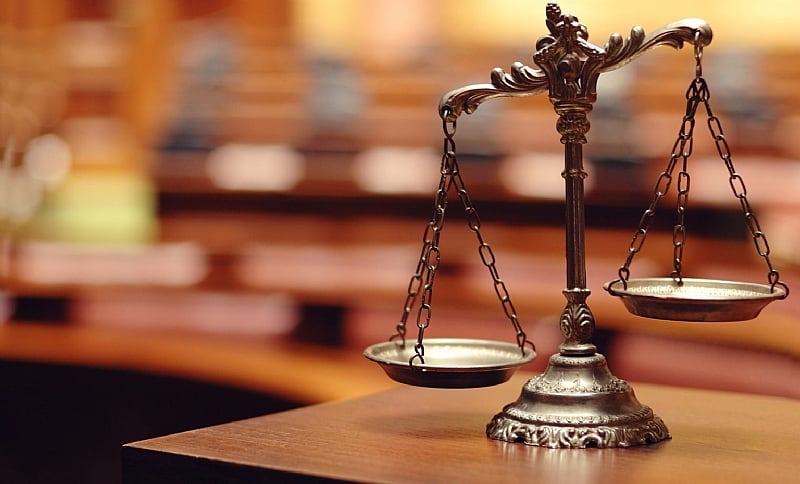The Adabraka District Court, presided over by Mrs. Abena Owusu Omenyo, has issued a stern caution to the family of the deceased immigration officer, Stephen King Amoah, urging them to exercise restraint and refrain from any actions that could disrupt the legal proceedings. This admonition follows an incident where Mr. Godwin Aboagye, a lawyer briefly involved in the case, was nearly assaulted by family members after a previous court session. Recognizing the immense emotional distress the family is experiencing, the judge emphasized the importance of allowing the judicial process to unfold without interference. She stressed that resorting to violence or other unlawful acts would not only be detrimental to their cause but could also result in serious legal consequences, including imprisonment. The court’s primary concern is ensuring the integrity of the legal proceedings while providing a safe and respectful environment for all parties involved.
The tension between the grieving family and the legal representatives of the accused highlights the delicate balance between seeking justice and upholding due process. Mr. Aboagye’s near-attack underscores the raw emotions surrounding the case, illustrating the family’s struggle to reconcile their grief with the requirements of the legal system. His plea to the court to intervene reflects the need for a measured approach to ensure that the pursuit of justice does not devolve into vigilantism. The judge’s response, acknowledging the family’s pain while firmly reiterating the importance of adhering to legal procedures, encapsulates the court’s dual role of providing solace and maintaining order.
Adding to the complexity of the situation is the defense counsel’s request for the court to direct the police to disclose the location where the accused are being held. This request stems from the family’s uncertainty about their whereabouts and their desire to provide them with necessary amenities. The defense’s concern raises important questions about access to legal representation and the rights of the accused, particularly when the emotional intensity of a case can potentially overshadow due process considerations. The court’s role in balancing these competing interests—the family’s desire for justice and the accused’s right to a fair trial—becomes crucial in navigating the sensitive dynamics of the case.
The case revolves around the tragic murder of Stephen King Amoah, a Ghana Immigration Service officer, and the subsequent arrest of two suspects, Bright Aweh, also known as Highest Bright, and Thomas Zigah. Both men have been charged with conspiracy to murder and murder, although they have yet to enter their pleas. Amoah disappeared on July 3, 2025, after leaving his home to meet Aweh at Ashongman Estates, purportedly to resolve a financial matter. His body was subsequently discovered in a drain at Abom Junction. The circumstances surrounding the meeting, including WhatsApp exchanges involving images of cash, point towards a pre-arranged encounter related to an alleged debt.
The investigation into Amoah’s disappearance quickly took a turn when Aweh’s account of the meeting, where he claimed to have given Amoah GHC500,000 to settle a debt and keep the remaining balance, was found to be inconsistent. This discrepancy, coupled with the discovery of incriminating evidence at Aweh’s residence, including bloodstained camouflage fabric and a fufu pestle wrapped in polythene, led to his initial arrest on kidnapping charges and later on murder charges. Zigah’s arrest followed after further investigations linked him to the crime, resulting in both men now facing the grave charges of conspiracy to murder and murder.
The unfolding legal proceedings will be crucial in unraveling the intricate details of this tragic case. The court’s role extends beyond simply adjudicating the charges; it must also manage the emotional undercurrents and ensure that justice is pursued within the bounds of the law. The cautionary words to the grieving family, along with the defense’s request for transparency regarding the accused’s detention, underscores the challenges inherent in balancing the pursuit of justice with the protection of individual rights. As the case progresses, the court’s ability to navigate these complexities will be pivotal in ensuring a fair and impartial outcome for all involved.


